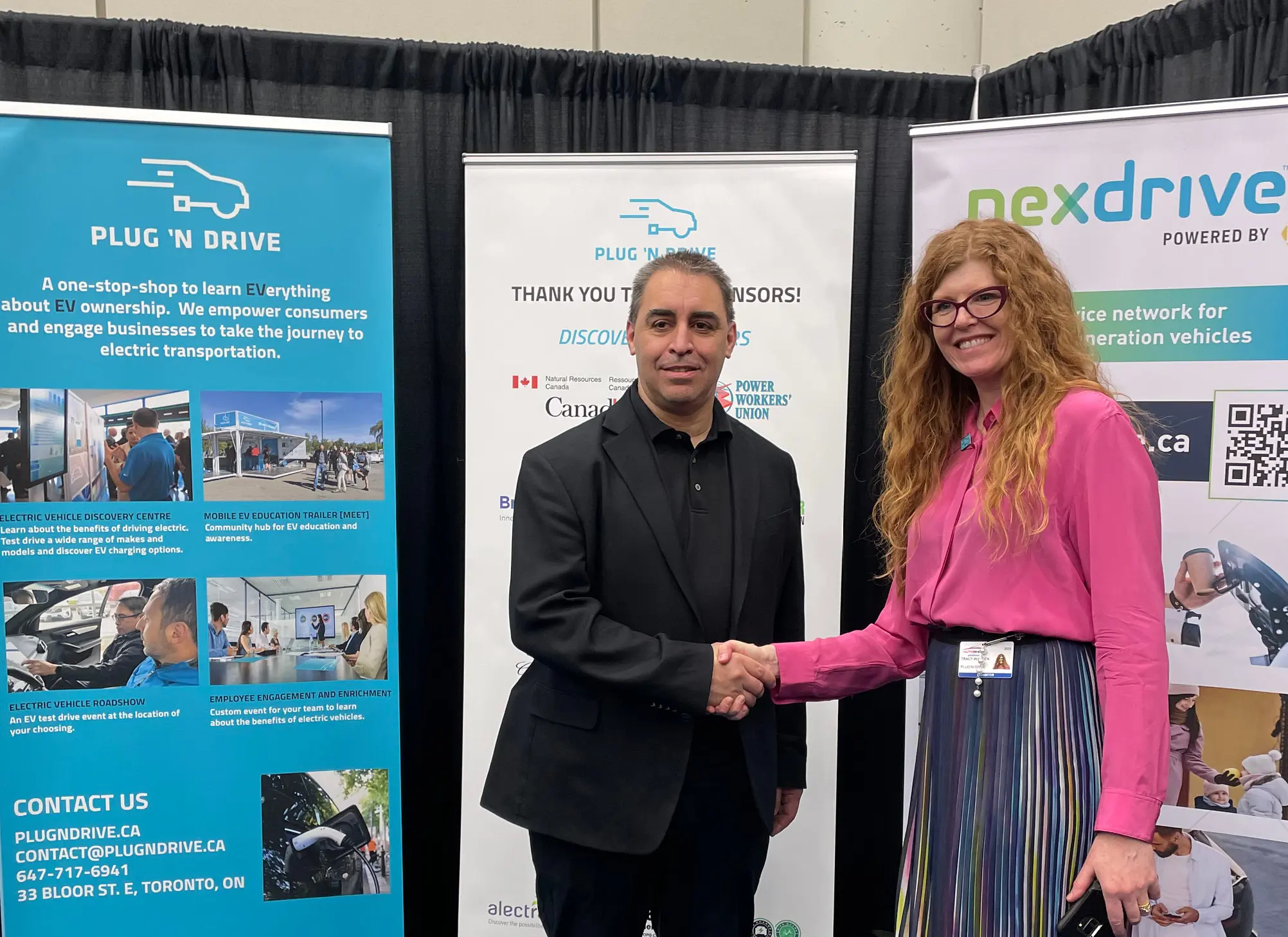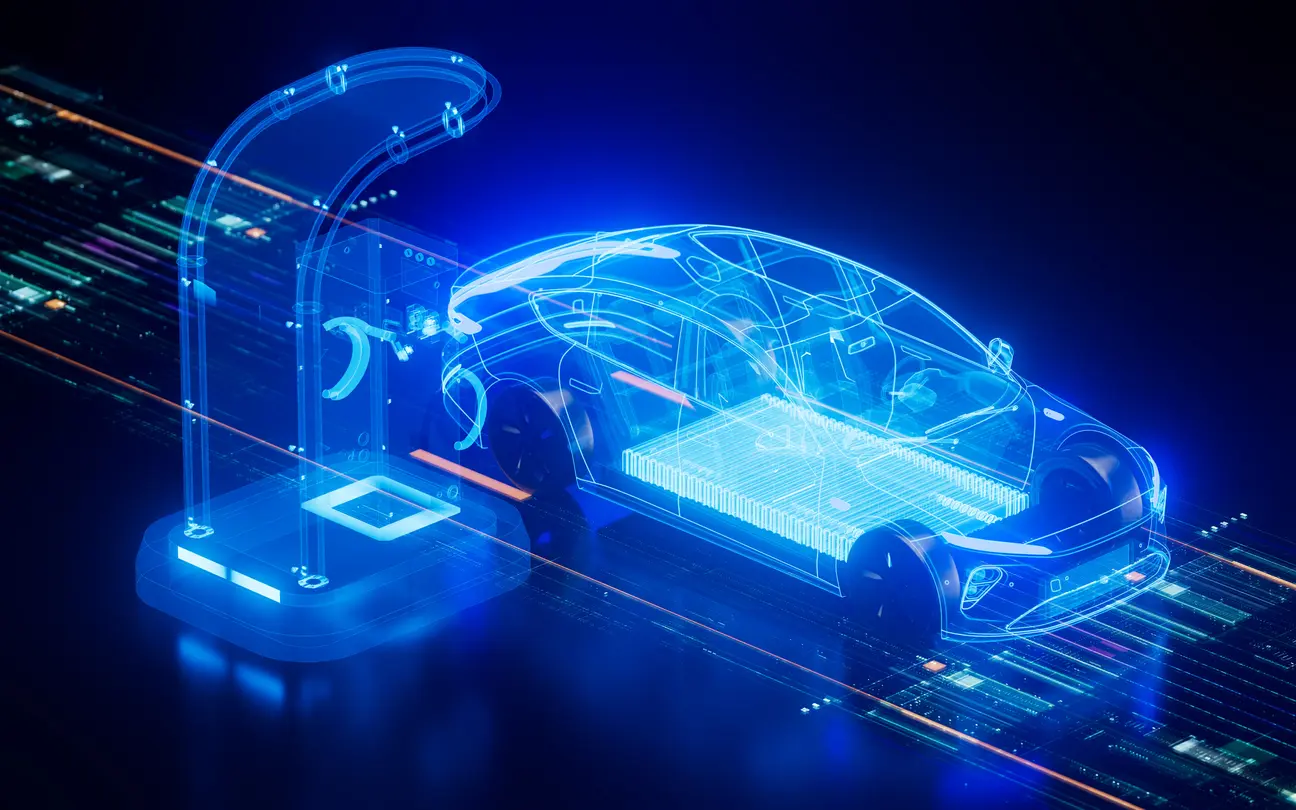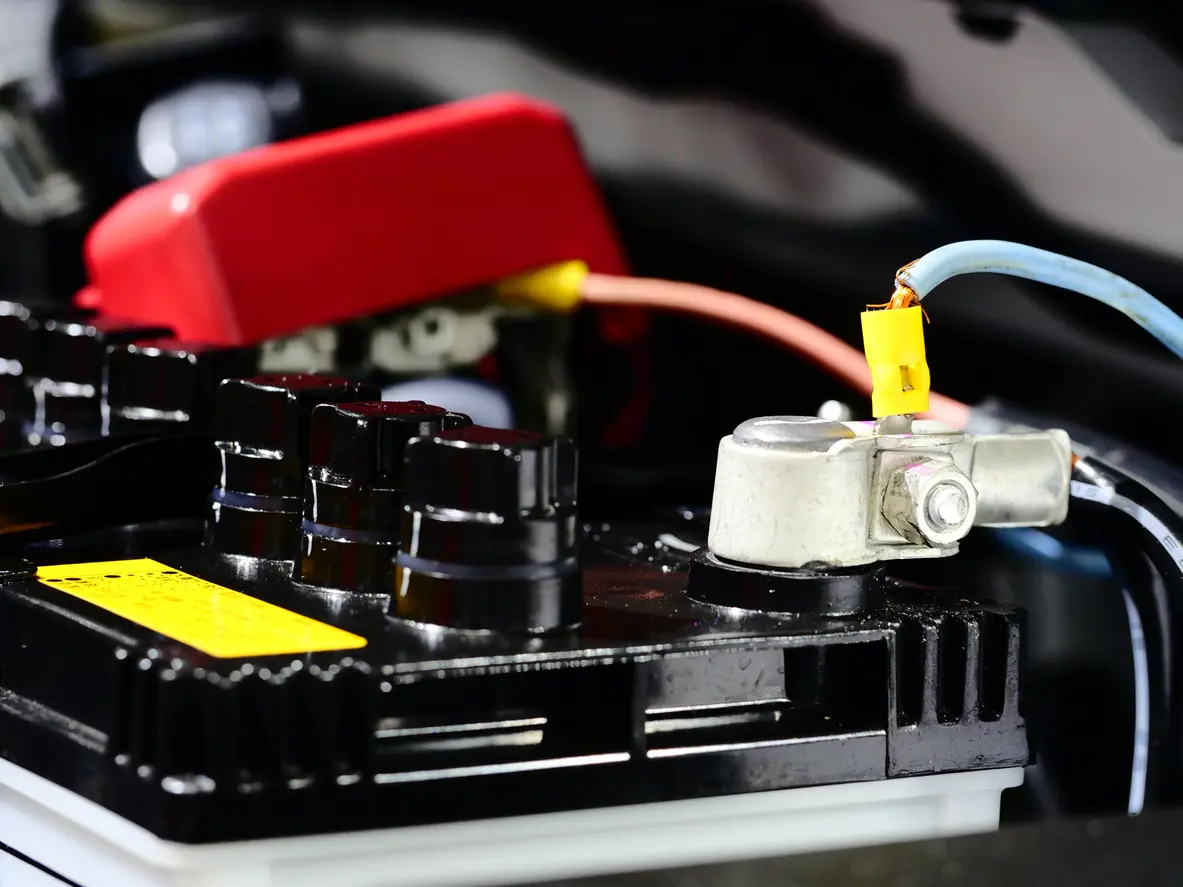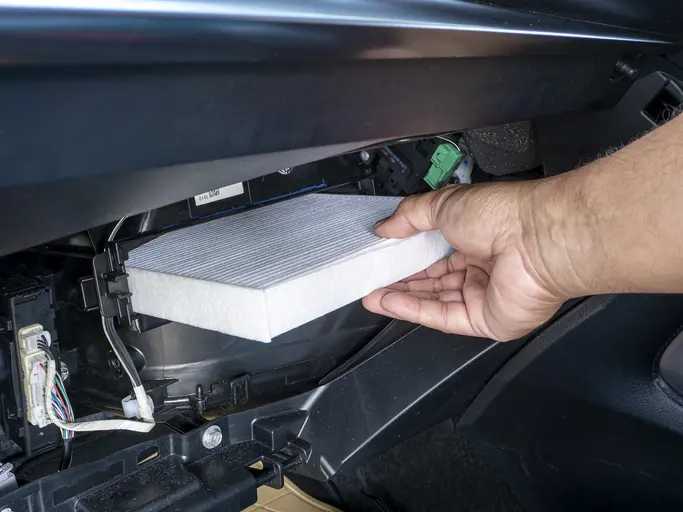Cabin air filter
Like gas-powered cars, EVs come equipped with a cabin air filter. These filters keep outside pollutants (e.g., dust, dirt, pollen) from entering your vehicle’s cabin so you don’t breathe them in. This is an essential part of your vehicle’s HVAC (heating, ventilation, air conditioning) system.
Most EVs have a standard cabin air filter, which is made of a pleated paper or fabric material. Some luxury EVs will have multiple filters and/or HEPA filters, which are denser and can trap more bacteria. These filters typically sit behind the glove box.
Regular cars need a cabin air filter replacement every year, but some EVs can use the same filter for up to two years. This task is quite easy to DIY and only takes a few minutes, but you can also pay a professional to do it for you. For more information on replacing your cabin air filter, check out this article.
Battery filter
Without a healthy battery, your EV won’t get you very far. To keep this crucial part running properly, EVs have a battery cooling system, which is usually accompanied by a filter.
The battery cooling system filter helps keep contaminants from getting into the cooling liquid and clogging the cooling channels.
Battery filters don’t have a defined replacement interval, but they should be assessed every year for dirt buildup to prevent clogging. Your owner’s manual will have more information about the battery cooling system and any maintenance it requires.
If your battery warning light is on, the fuel economy is decreasing, or your EV is having trouble charging up, the battery itself may need replacing.
Engine filters
EVs don’t require oil like gas-powered cars, so they don’t need oil changes. They still require other liquids, though, like brake fluid, transmission fluid, and coolant. This means full EVs don’t have an oil filter. Without an internal combustion engine (ICE), EVs also don’t have an engine air filter.
Hybrid electric vehicles (HEVs), however, have these filters. Since HEVs have an ICE, they require engine oil and usually need their oil filter changed at least once per year. To keep track of this schedule, get your oil filter replaced during your oil change. Engine air filters will also need changing yearly.
Check your manufacturer’s website for information on your EV type and what liquids it needs.
EV maintenance tips
If you’re a new EV owner, you may still be figuring out your maintenance routine. Since EVs have fewer moving parts than regular cars, you won’t need to worry about tasks like spark plug or transmission changes. Other tasks apply to all cars, though, such as washing and detailing, tire pressure checks, and windshield wiper replacements.
Many modern EVs have “condition-based maintenance” or “smart maintenance,” which means they can tell you when they need servicing. Pay attention to your dashboard for these notifications.
To learn more about what filters your EV has, review your owner’s manual. For any questions about EV filters or maintaining your EV, visit a NexDrive service centre to speak with an expert.
Find a NexDrive FacilityAutres ressources

NexDrive partners with Plug'n Drive

How battery thermal management systems work
Your EV’s battery thermal management system helps to improve battery performance and to keep the battery at a safe temperature. Learn how.

Can you jump-start a hybrid or electric vehicle?
Need to jump-start your EV or hybrid? Learn what functions the high-voltage and auxiliary batteries in your vehicle serve so you can do so with confidence.
